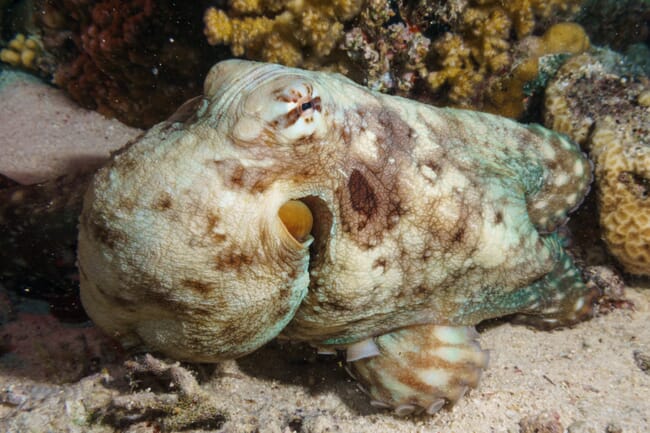Commercial scale octopus farming offers a potentially very lucrative, albeit somewhat controversial, form of aquaculture. However, as the New Zealand-based researchers involved in the new study explain, attempts to develop the sector have been hindered, in particular, by the “lack of hatchery technology for incubating, hatching and raising octopus larvae to provide the seed for growout”.

As a result, what is commonly referred to as octopus aquaculture actually involves ranching the animals: fattening wild-caught sub-adults to market size, which is – according to the researchers – commercially unsustainable.
As a result, they experimented with artificial octopus egg incubation methods, in a bid to eliminate the costs associated with maintaining mature female octopus for egg brooding.
The trial involved the development timetable and hatching of eggs from three broods of the common Sydney octopus (Octopus tetricus), using four experimental combinations of seawater flow and aeration in an upwelling incubation system.
The researchers recorded hatching success of over 90 percent in upwelling incubation systems with added aeration for all three broods, compared to 10–40 percent success rate in upwelling systems without aeration.
Meanwhile the higher rate of seawater flow improved hatching success in the absence of aeration, “suggesting that continuous turbulence is required around developing eggs for maintaining egg health and development, especially through the reduction of infection with pathogens”.
As a result, the researchers conclude that “incubation of O. tetricus eggs is achievable in the absence of maternal care, an important first step toward greater efficiency in hatchery production of octopus seed to supply commercial aquaculture.”
Further information
An abstract of the study, which was published in Aquaculture under the title, “Egg survival and morphometric development of a merobenthic octopus, Octopus tetricus, embryos in an artificial octopus egg rearing system”, can be accessed here.



